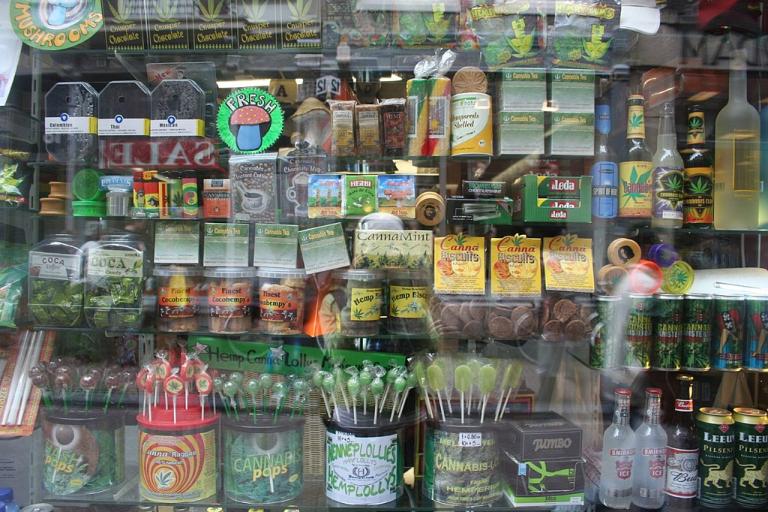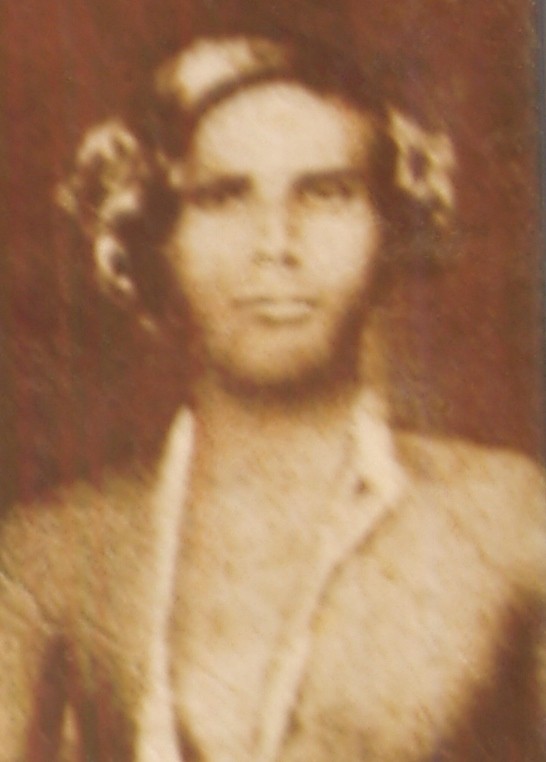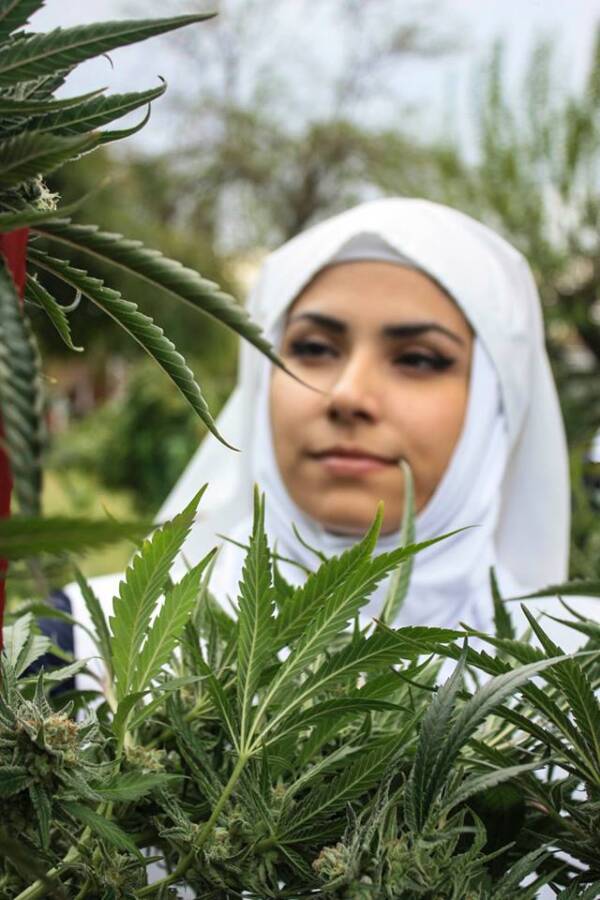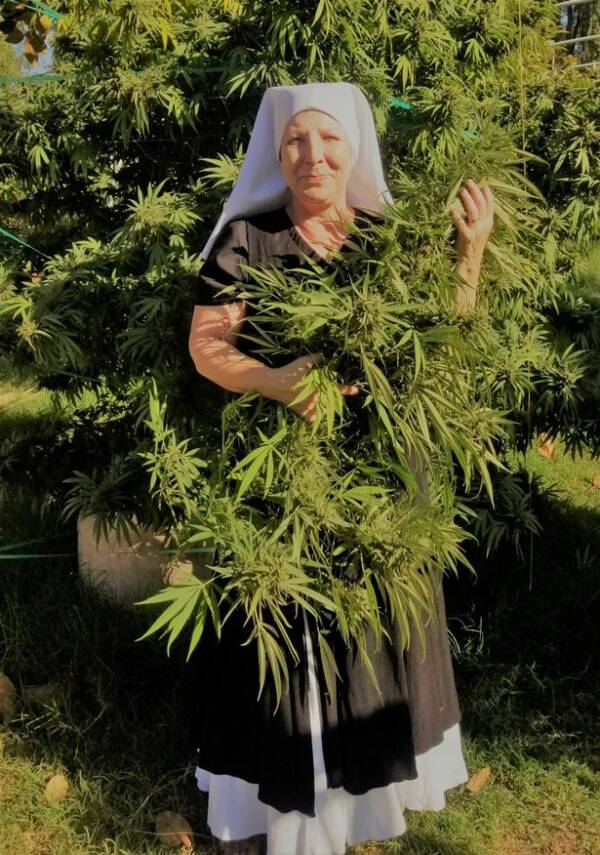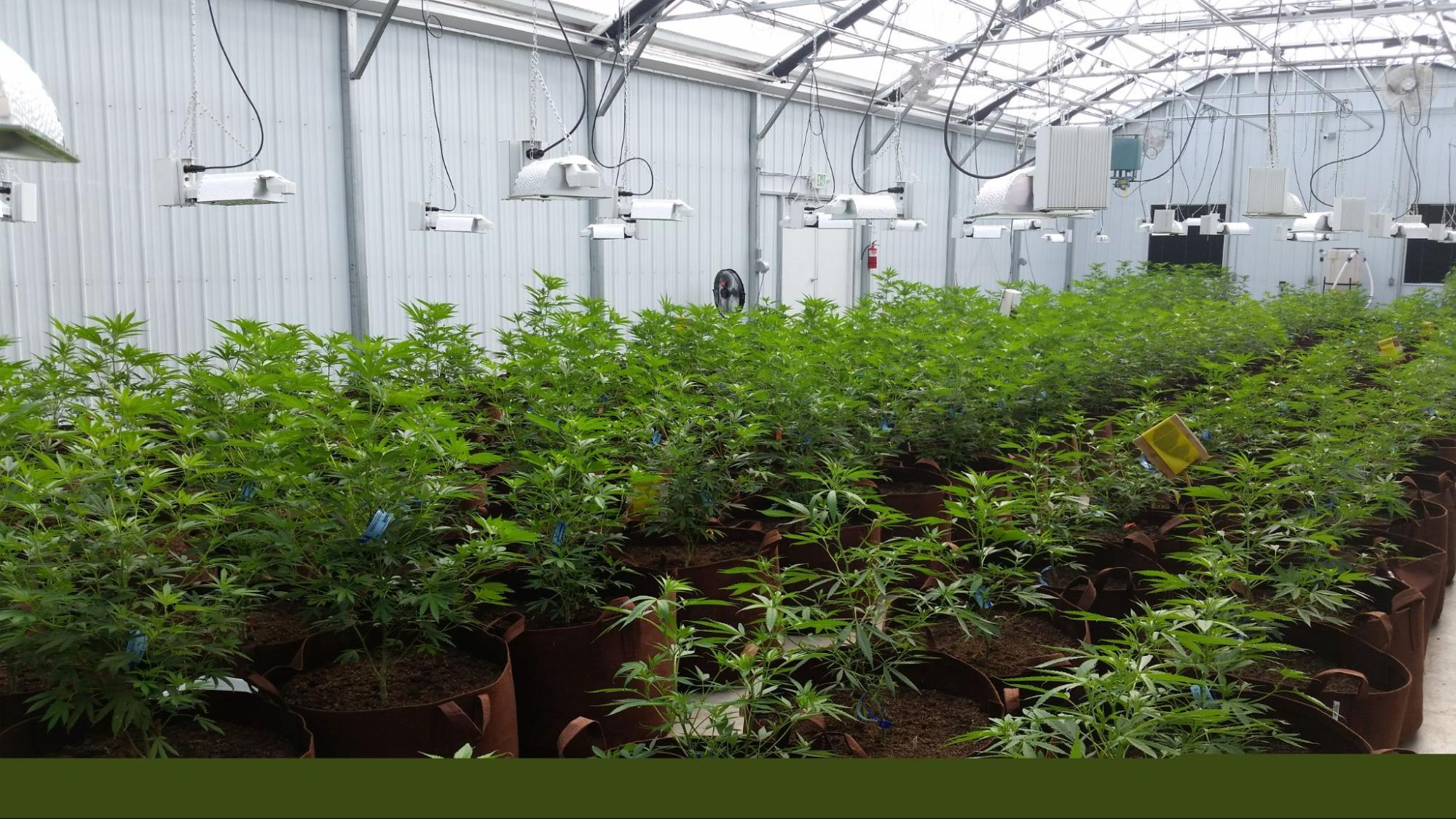“Thrailoka Vijaya Pathra” – Sri Lanka: The Green Miracle – By Dr Gamini Kariyawasam
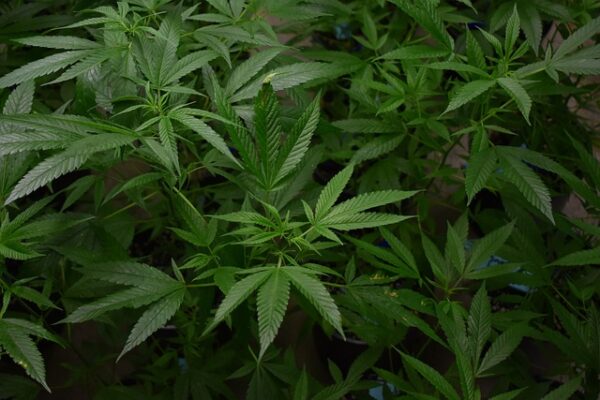 Cannabis Plant
Cannabis Plant
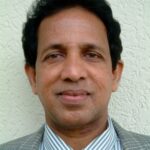 The Sri Lankan government, in its published budget document last year, recommended granting proper approval for the export of hemp (cannabis -Kansa ) abroad. This article aims to explore the historical background of the hemp plant, which is providing a new boost to Sri Lanka’s economy. It examines the plant’s wide international demand for medicinal production and its potential to be cultivated in a manner that does not pose a social threat to the country.
The Sri Lankan government, in its published budget document last year, recommended granting proper approval for the export of hemp (cannabis -Kansa ) abroad. This article aims to explore the historical background of the hemp plant, which is providing a new boost to Sri Lanka’s economy. It examines the plant’s wide international demand for medicinal production and its potential to be cultivated in a manner that does not pose a social threat to the country.
Due to the severe shortage of foreign exchange, the entire Sri Lankan society is under immense physical and mental pressure caused by the continuous failure to provide fuel, fertilizer, and food. This stress naturally leads to unstable minds, alienation, and disorganized behavior, a phenomenon known as anomic phase in sociology. During such a phase, social norms and values that regulate individual behavior tend to collapse and blur. The natural consequence is that people tend to disobey the orders of the security forces. The sight of starving people engaging in violent acts on the highways is considered to be the result of such an anomic era. To avoid such a terrible situation in Sri Lanka, relying solely on foreign loans is not enough. The government should focus on starting new agricultural and other innovative local products. In this regard, the attention given to the export of hemp in this year’s budget document is crucial, as it can be easily cultivated at low costs under the country’s climatic conditions.
The hemp plant has been known by many names such as Trailokyavijaya, Ananda Ganjakini, Vidalhada, Chapala, Charas, Madini, Veerapatra, Vijpatra, etc., since ancient times in Sanskrit literature. The term “Trailoka Vijaya Pathra” signifies the unification and reconciliation of the three doors: mind, body, and word.
In the traditional local knowledge book known as Puskola Grantha, this powerful medicinal plant is referred to as “Cannabis.” It is known as Ganja in Asian countries and Marijuana in Western countries. The ancients firmly believed that consuming the right dose of this plant would provide the human body with the same strength as a forest shelter. The cannabis plant has a long history, stretching from Kashmir along the Himalayas to southern Kazakhstan. Archaeological excavations in the Gangetic Valley of the Altai Mountains in China have confirmed the widespread use of hemp in a large area. Carbon-14 testing reveals that the origin of this plant dates back 37 million years.
Among the countries where this herb thrives, Sri Lanka holds a priority. Various parts of the hemp plant are recommended as the main ingredients in over a thousand traditional medicine recipes.
Sage Pulast Wrishii, a renowned doctor in the field of local medicine who lived in Sri Lanka about 4400 years ago (ancestors of King Ravana), listed the hemp plant as a powerful medicine in a significant number of prescriptions. The Ramayana, which dates back to 2554 BC, confirms that the medicinal properties of the hemp plant were extensively discussed in the ancient medical texts of King Ravana, namely Arkaprakasya, Nadivignana, Kumaratantra, and Udishatantra. The hemp plant is included in the quintet of wondrous branches mentioned in the Rig Veda. King Buddhadasa (341-370 AD) compiled a medical book that describes the medicinal values of the hemp plant in detail, known as the Sarartha Sangraha. Ancient famous local medical texts such as Yogarnavaya and Prayagoratnavaliya (1232 AD) also provide detailed descriptions of the medicinal properties of the hemp plant.
Hemp belongs to a group of plants called Cannabis sativa, which is part of the Cannabaceae genus. It thrives in temperate and tropical climates. Hemp is an incredibly versatile plant, with different parts containing cannabinoids such as Tetrahydrocannabinol (THC) and Cannabidiol (CBD), which are psychoactive chemicals. These compounds stimulate the pleasure centers in the brain, resulting in a light, happy, and enjoyable experience for those who consume cannabis.
When hemp parts are burned, smoked, or inhaled, they elicit a spectrum of psychoactivity in humans. Hemp is a potent immunosuppressant that enhances cytokine responses. It has been used in indigenous and Ayurvedic medicine for treating various conditions such as cancer, Alzheimer’s disease, skin diseases, heartburn, skin lightening, hair growth, wrinkle control, and as an antiseptic and herbal herb. Many people in society are turning to hemp for its antioxidant properties, increased sexual energy, and physical strength.
In the past, hemp provided rare stimulation to rural farmers, helping them alleviate the fatigue from their day-long farming activities. Lighting a small bonfire in the evening and sitting around it with neighbors while inhaling the hemp smoke was an integral part of their daily routine. However, the use of hemp as well as the freedom to use it as an herb was deprived of the people when the Poisons, Opium, and Dangerous Drugs Ordinance decriminalized the use of cannabis in 1935.
The prohibition of hemp use in Sri Lanka can be attributed to several factors. The British Empress issued an order banning the use of hemp in 1867, influenced partly by the strength of Sinhalese forces fighting against British rule. British authorities, motivated to find reasons to weaken the Sinhalese, received reports from spies stating that the use of hemp increased the stamina of the Sinhalese and prevented diseases. Additionally, the British pharmaceutical business in Sri Lanka was at a low level, and they feared that the cultivation and use of hemp would lead to a decline in tobacco cultivation, which the British planned to introduce to Sri Lanka. Overcoming the original prohibition of hemp was also a challenge for Western pharmaceutical manufacturing companies and local herbs that produced hemp-related products. Thus, a strict law prohibiting the cultivation, possession, and use of hemp was imposed.
The Ayurveda Act made it possible for Ayurvedic doctors to procure hemp for their medicinal products, and recent international laboratory research has confirmed the medicinal value of the hemp plant. Medical researchers have found that when used in prescribed doses for mental stimulation, hemp has fewer adverse effects on the human body compared to alcohol and tobacco.
The use of hemp for mental pleasure has been legalized in several countries, including Uruguay and 35 states in the US for medicinal purposes. Former President Barack Obama acknowledged that smoking marijuana does not cause more harm than alcohol and stated that the legalization of drugs could solve many social problems. Universities, such as Niagara University in the United States, have established dedicated faculties for the study and research of hemp cultivation and related commercial products.
China, the world’s largest hemp producer, has never banned hemp, and the global raw industrial hemp market is predicted to grow by 300% or reach US$10 billion in the next five years. Currently, more than 70 countries, including the United States and China, earn billions of dollars annually from the production of raw industrial hemp.
Given the foreign exchange crisis Sri Lanka is facing, the cultivation of hemp in a marketable manner can help reverse the country’s economic recession. It is essential for the government to prioritize and support the cultivation of hemp by providing proper guidance, policies, and a systematic regulatory framework. Establishing a dedicated authority, such as the Hemp Authority, would streamline the process from cultivation to marketing, ensuring that hemp is not misused in society. To prevent improper use, it is advisable to implement appropriate regulations and controls.
In conclusion, the cultivation and export of hemp have the potential to significantly contribute to Sri Lanka’s economy. With its rich historical background and wide international demand for medicinal production, hemp can be a valuable asset for the country. By embracing hemp cultivation in a regulated and marketable manner, Sri Lanka can tap into the growing global hemp market and alleviate its foreign exchange crisis. However, it is crucial to establish proper government guidance, policies, and a regulatory framework to ensure the responsible and controlled use of hemp. With the right approach, hemp has the power to bring about positive economic and social transformations in Sri Lanka, making it a true green miracle.

Beauty cultural Products made from hemp .Medicines made from hemp
Sri Lanka government, last year In the published budget document, it was recommended to give proper approval for the export of hemp (Cannabis- Kansa ) abroad. The basic expectation of this article is to examine the historical background of the minor hemp plant that gives a new boost to Sri Lanka’s economy, its wide international demand for medicinal production, and the ability to cultivate it in a manner that does not pose a social threat in this country.
Due to the severe shortage of foreign exchange, the entire Sri Lankan society is under severe physical and mental pressure due to the failure to provide fuel, fertilizer, and food continuously.
Stress naturally makes their minds unstable, alienated, and disorganized. Form and end. This anomaly is what sociologists call an anomalous( Anomic ) phase as That is social norms and values that regulate individual behavior tend to collapse and blur. The natural result of the anarchy phase is that people tend to disobey the orders of the security forces. Starving people on the highway in a very exciting and violent manner, and beating each other to death is considered to be the end result of an anarchy era. In order to avoid such a terrible situation in Sri Lanka, we should not only rely on getting foreign loans, but to get rid of the economic crisis, we can earn foreign exchange through exports. The government’s attention should be focused on starting new agricultural and other innovative local products. Meanwhile, it is extremely important that this year’s budget document has paid close attention to the export of hemp, which can be easily cultivated without high costs under the climatic conditions of this country.
“TriWorld Victory Leaves, Many names like Thrailokavijaya, Ananda Ganjakini, Vidalhada, Chapala, Charas, Madini, Veerapatra, Vijpatra, etc. have been used for hemp since ancient times in Sanskrit literature books. The meaning of “Thrailoka Vijayapatra” is that the three doors of “mind, body, word” are united and reconciled.
This powerful medicinal plant is called “Cannabis” in the old local medicine Puskola prescriptions.It is known as Ganja in Asian countries and Marijuana in Western countries. The ancients firmly believed that taking the right dose of this plant would give the human body the same strength as a forest shelter. The cannabis plant has a long history, from ‘Kashmir along the Himalayas to southern Kazakhstan’. In the Gangetic Valley of the Altai Mountains in China Archeological excavations have confirmed that hemp was widespread in a large area. Carbon 14 testing reveals that the origin of this branch “dates back 37 million years.”
Among the countries where this herb grows flourishing, Sri Lanka has a priority.
Hemp plant parts are recommended as the main drug in more than a thousand recipes of traditional medicine.
Sage Pulasti, who lived in Sri Lanka about 4400 years ago, is considered a famous doctor in the field of local medicine. (Ancestors of King Ravana) A significant number of prescriptions prepared by Hemp listed the plant as a powerful medicine. who lived in 2554 BC The Ramayana confirms that the yogic properties of the hemp plant were brought up in the ancient four medical texts of the King Ravana, namely Arkaprakasya, Nadivignana, Kumaratantra, and Udishatantra. The hemp plant is included in the wondrous quintet of branches mentioned in the Rig Veda. A medical book compiled by King Buddhadasa (341-370 AD). The medicinal values of the hemp plant are well described in the Sarartha Sangha. The medicinal properties of the hemp plant are described in detail in ancient famous local medical texts such as Yogarnavaya and Prayagoratnavaliya (1232 AD).
.Hemp belongs to a group of plants called Cannabis sativa belonging to the genus Cannabaceae.Hemp.The plant grows in temperate and tropical climates. Hemp is certainly a versatile plant. Different from the top of the branch to the root parts, called cannabinoids tetrahydrocannabinol (THC) and Cannabidiol (CBD)} are psychoactive Chemicals that Contain two compounds. This ingredient stimulates the part of your brain that responds to pleasure. It infuses the mind of people who take cannabis with some light, happy and enjoyable inspiration.
After burning, smoking, or inhaling hemp parts, an excitatory spectrum of human psychoactivity is elicited.
Hemp is a potent immunosuppressant that enhances cytokine responses. Curing cancer in indigenous and Ayurvedic medicine, controlling the destruction of brain cells known as “Alzheimer”, skin diseases, curing heartburn, skin lightening, hair growth, and skin wrinkle control. Hemp is also used as an antiseptic as well as a herbal herb. Many people in society are focusing on the use of hemp considering it as an anti-oxidant drug that increases sexual energy as well as physical strength..
The previous day, the hemp plant was able to provide a rare stimulation to the rural farmers, in order to relieve the fatigue of farming all day long. It was an integral part of the farmer’s daily routine to light a small bonfire in the evening together with his neighbors. Then they put raw hemp plants into the bonfire and sat around it and got a rare pleasure from inhaling the hemp smoke. was
In this way, people are deprived of the enjoyment of using hemp as well as the freedom to use it as an herb1935 when the Poisons, Opium, and Dangerous Drugs Ordinance decriminalized the use of cannabis.
It is believed that a number of factors accidentally influenced the prohibition of the use of ‘hemp’ in Sri Lanka by the order of the British Empress in 1867. Like Saradiel in Mount Utuwan Kanda, the iron strength of the Sinhalese forces who fought against British rule caused the British to be surprised. Although the Sinhalese had been fighting in the Gorges for a long time, they were motivated to look for reasons so that they would not be easily defeated and suffer from disease and suffering. The spies reported to the British control authority that the use of hemp, which has a slight antidote to prevent easy disease, increased the stamina of the Sinhalese. It is considered that the fact that the British pharmaceutical business in Sri Lanka was at a very low level was a minor factor that motivated the British to ban the use of hemp by the Sinhalese. In addition, they informed the control authority that the cultivation and use of hemp will lead to the decline of tobacco cultivation, which the British planned to introduce to Sri Laka. Also, the challenge of Western pharmaceutical manufacturing companies and the local herbs that produce hemp-related products is to overcome the original prohibition of hemp. There is a general opinion that “Cultivation, possession, and use of hemp in Sri Lanka is a punishable offense” and it is under this background that a strict law is imposed.
 Weera Saradiel of Utuwankande, who was energized by the use of hemp, posed a great challenge to the British.
Weera Saradiel of Utuwankande, who was energized by the use of hemp, posed a great challenge to the British.
Later, the Ayurveda Act (Act No. 31 of 1961 as amended by Act No. 5 of 1962) made it possible for Ayurvedic doctors to procure hemp for their medicinal products.
Recently, internationally conducted laboratory research has unequivocally confirmed the medicinal value of the hemp plant. Medical researchers have shown that if hemp is used according to a prescribed dose for mental stimulation, it has little adverse effect on the human body compared to alcohol and tobacco.
The use of hemp for mental pleasure In 2013, Uruguay was the first country to pass the law. 35 states in the US have legalized cannabis for medicinal purposes. Former president Barack Obama, who made a statement about the legalization of marijuana (hemp) in Colorado and Washington states in 2014, said that smoking marijuana does not cause more harm than alcohol, and is related to natural plants. Medical researchers as well as social scientists have reported to themselves that the legalization of drugs is a method that can solve many social problems. In the United States of America, Niagara University has established a separate Faculty of Science for the study and research of hemp cultivation and related commercial products.
nuns tending a hemp plantation in the USA.
China, which has never banned hemp, is the world’s largest hemp producer and the global raw industrial hemp market is predicted to grow by 300% or US$10 billion in the next five years. According to the report, more than 70 countries around the world, including the United States and China, have managed to earn billions of dollars annually from the production of raw industrial hemp.
The global legal hemp market size was valued at USD 13.2 billion in 2021 and is expected to expand at a CAGR of 25.5% from 2022 to 2030. Indian expert Suhail Abidi, From a research report posted on the Trade Promotion Council of India website.
Like the foreign exchange crisis that Sri Lanka is currently facing, Pakistan also had to face an acute foreign exchange deficit two years ago. On September 01, 2020, permanent permission was given to grow hemp as an export crop in the country. With the desire to eliminate the foreign exchange deficit.
The world’s fastest-growing global hemp to reverse Sri Lanka’s economic recession is important for the government to pay close attention to starting the cultivation of hemp in a marketable manner. Here. Proper government guidance, policies, and a systematic regulatory framework are imperative for the medicinal hemp industry to flourish. It is preferable to establish an authority to formally initiate and maintain hemp cultivation on a large scale.
By directing the newly established Hemp AuthorityAll the work can be done from starting, maintaining, and marketing the fruit to foreign markets. In order to prevent hemp from entering society in an improper way, it is advisable to take action to get the support of the military units of the respective provinces. By employing skilled farmers in hemp farming for the hemp farm training labor, they also get the opportunity to get a monthly salary.
Hemp is a plant that yields annually, but in commercial cultivation, hemp growers at the business level in the world have shown that this cycle can be shortened to 3 months.
Due to the lack of essential warm climate factors, commercial hemp cultivation is done in many foreign countries, especially in specially prepared greenhouses. There is a favorable atmosphere. Hemp is resistant to pests that affect many other crops. Therefore, the additional high cost of pesticide chemicals, as well as the damage caused to the environment by chemical liquids, can be avoided in hemp cultivation.
A greenhouse where hemp is grown in the USA
In addition to the main objective of earning a large amount of foreign exchange from the export of raw hemp, there is a definite tendency for our country to have many additional benefits from cultivation. By expanding the cultivation, it is extremely important for the government to focus on the production of hemp oil and the introduction of not only medicines but other additional petroleum products from the extracted oil locally. Using hemp as raw material, As well as creams for improving skin quality, strengthening nails, and thick hair growth, The success of European countries in developing their foreign assets through additional products such as cosmetics, soaps, and shampoos gives us a good guide.
Many years ago, Mr. Rajitha Senaratne, who was a former cabinet minister at that time, proposed a proper method for growing hemp and exporting the harvest, but it was not implemented. Recently, the Minister of Local Medicine, Mr. Sisira Jayakodi, sent a proposal to the current government to remove the hemp ban and prepare a program to export hemp for herbal products.
It is of the utmost importance that the government devotes an effort to these tasks that is not second to the efforts it is currently making to obtain foreign loans. With this, the country’s current economic recession will be avoided in the next few years and all foreign debts will definitely be settled.
Dr. Gamini Kariyawasam.
(Former Commissioner.of Ayurveda, Sri Lanka ) gaminee@gmail.com


